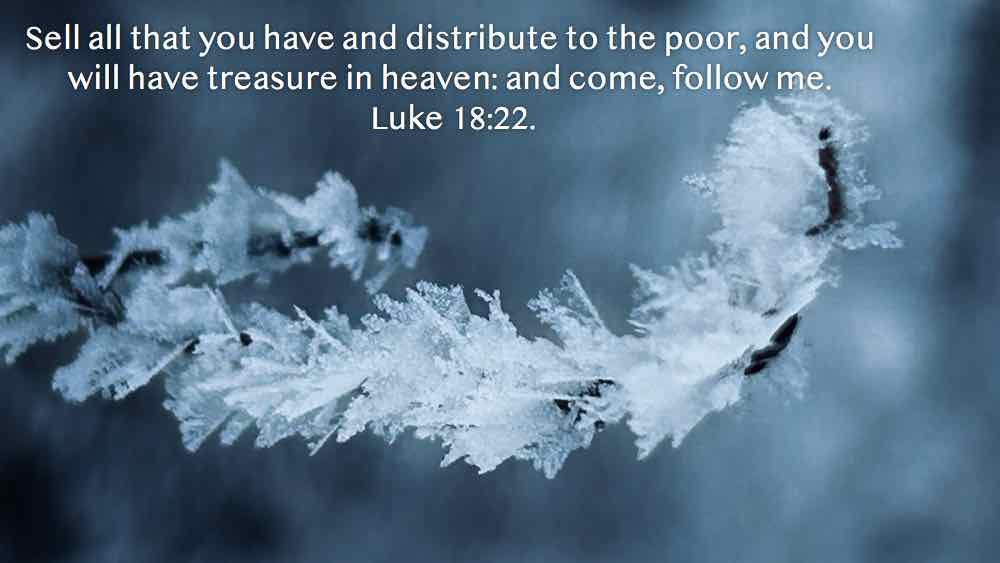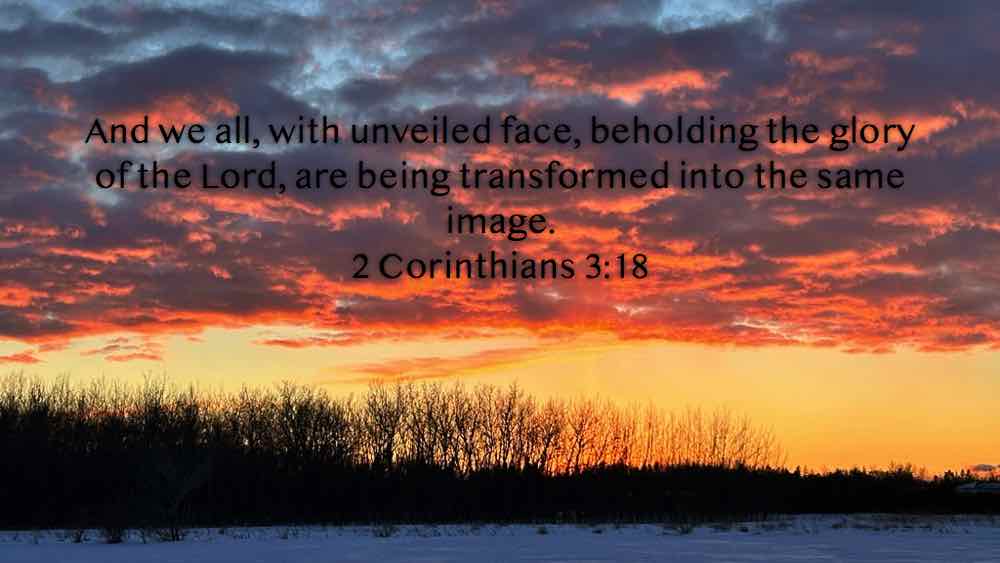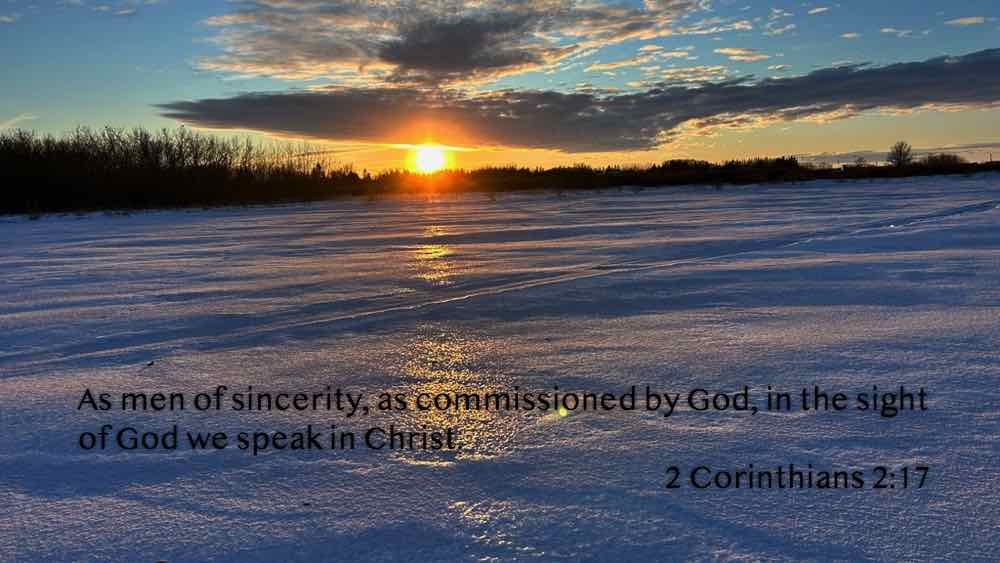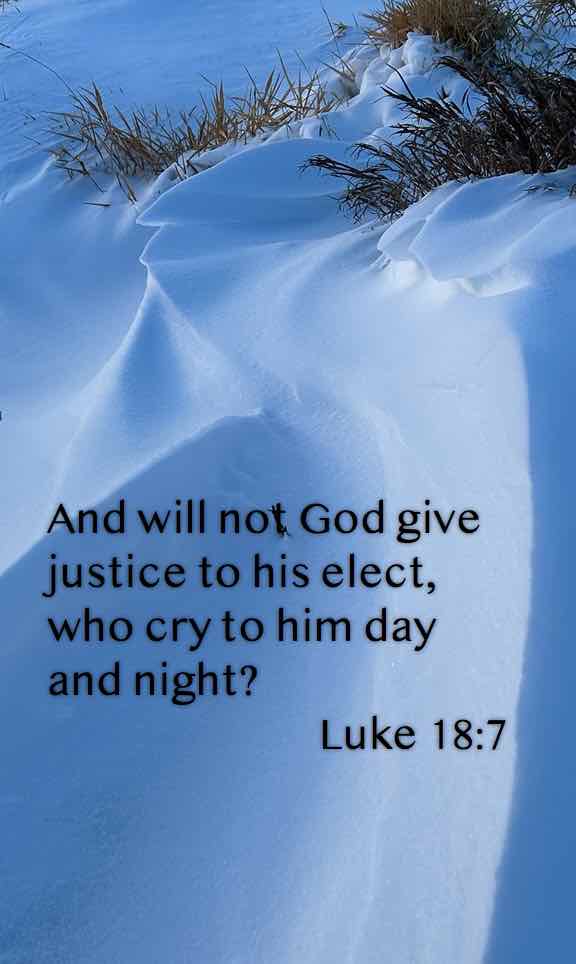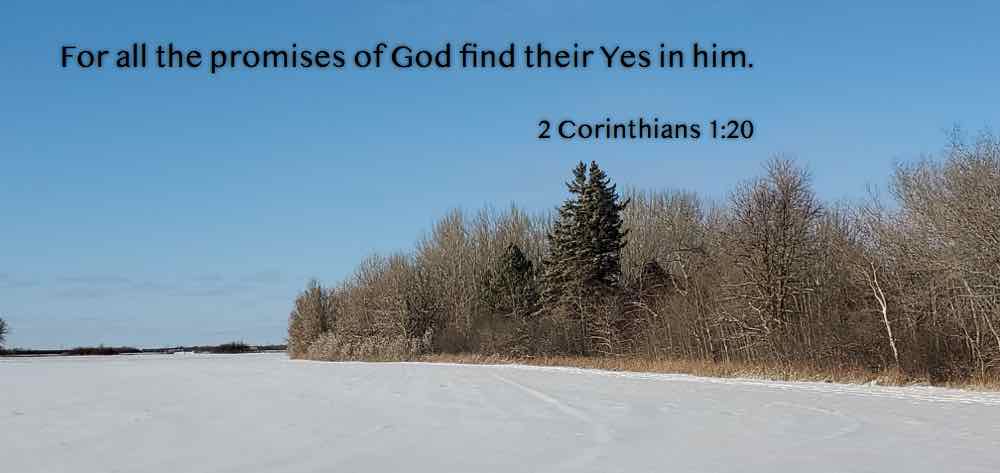January 21, 2026
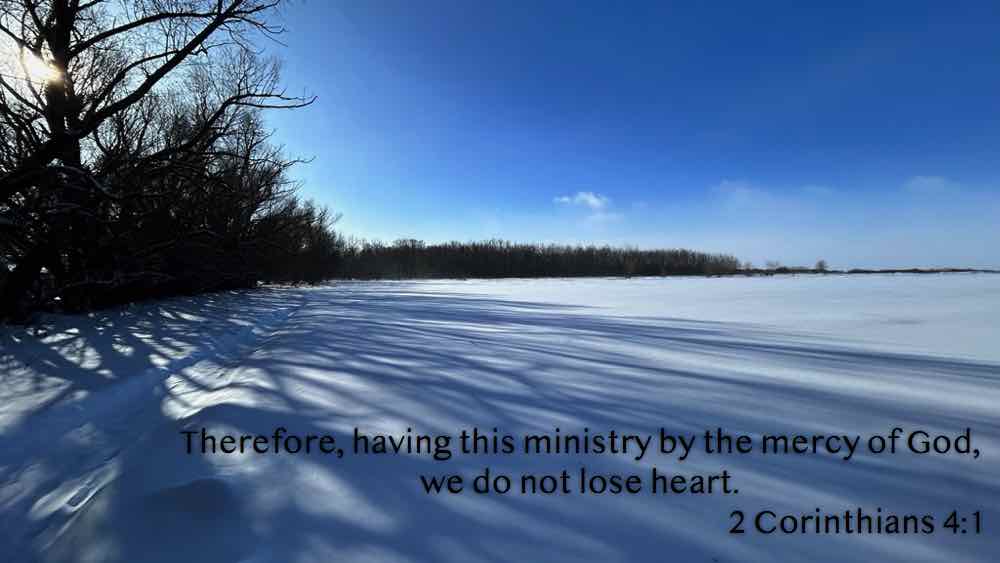
2 Corinthians 4 ESV
Therefore, having this ministry by the mercy of God, we do not lose heart. But we have renounced disgraceful, underhanded ways. We refuse to practice[ cunning or to tamper with God’s word, but by the open statement of the truth we would commend ourselves to everyone’s conscience in the sight of God. And even if our gospel is veiled, it is veiled to those who are perishing. In their case the god of this world has blinded the minds of the unbelievers, to keep them from seeing the light of the gospel of the glory of Christ, who is the image of God. For what we proclaim is not ourselves, but Jesus Christ as Lord, with ourselves as your servants for Jesus’ sake. For God, who said, “Let light shine out of darkness,” has shone in our hearts to give the light of the knowledge of the glory of God in the face of Jesus Christ. But we have this treasure in jars of clay, to show that the surpassing power belongs to God and not to us. We are afflicted in every way, but not crushed; perplexed, but not driven to despair; persecuted, but not forsaken; struck down, but not destroyed; always carrying in the body the death of Jesus, so that the life of Jesus also may be manifested in our bodies. For we who live are always being given over to death for Jesus’ sake, so that the life of Jesus also may be manifested in our mortal flesh. So death is at work in us, but life in you.Since we have the same spirit of faith according to what has been written, “I believed, and so I spoke,” we also believe, and so we also speak, knowing that he who raised the Lord Jesus will raise us also with Jesus and bring us with you into his presence. For it is all for your sake, so that as grace extends to more and more people it may increase thanksgiving, to the glory of God.So we do not lose heart. Though our outer self is wasting away, our inner self is being renewed day by day. For this light momentary affliction is preparing for us an eternal weight of glory beyond all comparison, as we look not to the things that are seen but to the things that are unseen. For the things that are seen are transient, but the things that are unseen are eternal.
Discussion Questions:
1) In verses 1-6 Paul continues using the word picture of Moses’ veil – this time to describe his ministry. What is he telling the Corinthian brethren about his ministry?
2) In verses 7-18 Paul now compares his life experiences to his ministry. What is he telling the Corinthian brethren about his life experiences?
Discussion Summary:
Verses 1-6: Paul’s conversion was accompanied by a great light (Acts 9:3). He was then given a ministry that is similar in that it is bringing a great light to others – the light of the gospel. This is a ministry of the New Covenant (2 Corinthians 3:6), a ministry of the Spirit (3:8) and a ministry of righteousness (3:9), and it impelled Paul forward in service to others.
Unlike the picture of Moses who spoke to the children of Israel while veiled, Paul used great plainness of speech. He was bold in his presentation of the gospel. This can be seen when he preaches to the Jews of Thessalonica (Acts 17:1-6), which is described as “these men who have turned the world upside down.” This can also be seen when he preaches to gentiles in Ephesus (Acts 19:21-41), which is described as filling the city with confusion and rioting.
Verses 7-18: This ministry resulted in a life that was not easy, but was filled with suffering and reproach for Paul. These afflictions striped away his old self (outer man) with its desires, ambitions and hopes and replaced these with spiritual growth and desires (inner man). See Philippians 3:12-16.
Paul’s life in this “ministry” could only be accomplished by the power of God. If it was based on human strength and for a human reward in the present life, Paul would have quit. What would be the point for someone to keep striving forward if the only result was suffering? Paul emphasizes that he could only continue in this ministry and thrive while undergoing these experiences because of the power of the Holy Spirit in his life. We must remember that all Christians are called to this same “ministry” (1 Corinthians 1:26-29).
